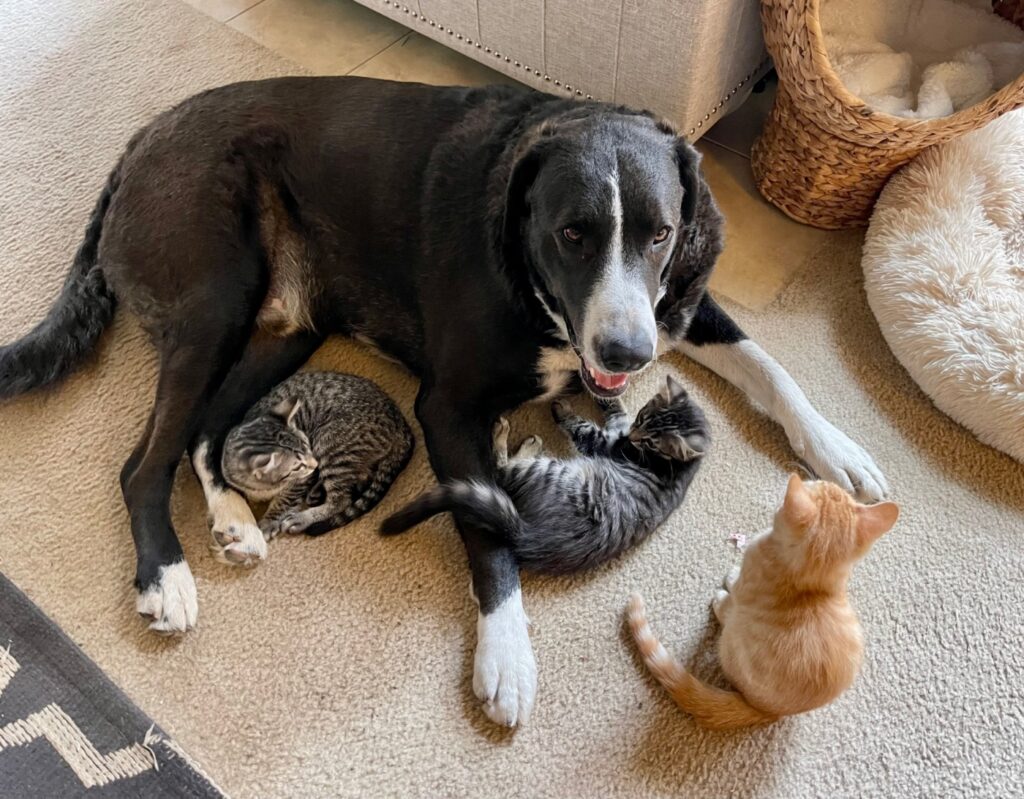
They sleep on your neck, steal your roasted chicken and forever leave a mark on your heart.
Orphaned kittens flood animal shelters each spring and summer. Most are frail, smaller than the palm of a hand, unable to see, walk or feed themselves. Life hangs on every hour they are without food or warmth.
Enter the foster parent. These determined surrogates solve two critical problems: lowering the burden on the animal shelter and nurturing helpless creatures. They say goodbye to sleep and social events while tending hourly to tiny creatures – bottle feedings, baths, cuddle time, encouragement, soaring joy and sometimes choking sadness.
The goal is simple: Teach these future companions the ways of cats: playing, sharing, comforting. If the family dog wants to help, even better.
Weeks later, when the foster parent’s job is done, these fluffy wards move on to adoption, ready to conquer the hearts of their forever families.
Soon, there will be another late-night call, another desperate text: We’ve got a week-old orphan, can you help?
Absolutely.
What it takes to foster
How long? Fostering a kitten typically takes up to two months, depending on their age. If you are caring for newborns, expect to go the distance. They’ll need at least eight weeks to be weaned, potty trained, vaccinated and ready to transition. If “transitional” kittens older than 3 weeks of age need help, expect to foster them around four to five weeks.
More ‘Pets’
This story is part of a collection of stories printed Sunday, July 31, 2022.
‘Dog Whisperer’ Cesar Millan says if you want a better behaved dog, be a better human
Here’s an easy guide to start birdwatching in Southern California
Canine Rehabilitation gives dogs, and their owners, hope for recovery
Read more ‘Pets’
More SCNG Premium content
How to sign up? Find a local nonprofit rescue organization in your community. The Orange County Animal Center in Tustin also has a foster caretaker program that teaches volunteers how to do it. When in doubt, check local pet stores for rescue connections. The closer to your home the better. Why? Their supply chain and partner veterinarians also will be closer to you.
What you’ll need: Rescue organizations, including most animal shelters, will provide necessary supplies such as kitten formula, bedding, litter, food and any veterinarian care such as vaccines or medical intervention. Foster volunteers work for free, contributing their time, patience and compassion. Be sure to have a clear schedule if you plan to foster. Newborns need attention 24/7.
Saying goodbye: The hardest part of fostering a kitten or any pet is often saying goodbye. Some of us “fail” and an orphaned kitten that snares your heart winds up a family member. Pro tip: Remember there will be more kittens that need your help. This often soothes the heartache the day your precious wards leave their first home.
More about cat care
Here’s why you should adopt a pet from an animal rescue
How you can feed kittens dropped off at OC Animal Care shelter and save their lives
How one small cat made a big impact on a woman’s idea of what makes a home
‘Worst kitten season in years’ explodes after OC stops fixing feral cats
